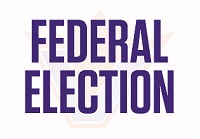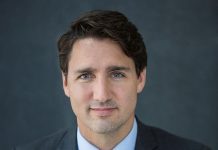IN a random sampling of public opinion taken by The Forum Poll among 1,490 Canadian voters, half say the Liberals are bad economic managers, with a third (32%) saying they are very bad.
One-fifth say they are good economic managers, but only 1 in 20 (5%) say they are very good. A third (30%) say they are neither bad nor good.
* About 4 in 10 (39%) say they’ve heard something about the budget, while a quarter (28%) say they’ve heard a lot. One-fifth (20%) say they’ve not heard a lot, while 1 in 10 (12%) say they’ve heard almost nothing.
* The majority (56%) say that they prefer a balanced budget to more spending on programs and services, but this finding is down 5 points since 2018 (March 1, 2018: 61%). Just over 4 in 10 (44%) say they prefer more spending on programs and services, up five points since 2018 (March 1, 2018: 39%).
Almost half (46%) say their finances are neither better nor worse after four years of Liberal budgets. A third (34%) say their finances are worse, while one-fifth (20%) say their finances are better.
* Almost half (46%) say they’re neither more anxious nor less anxious about their finances after four years of Liberal budgets. 4 in 10 (40%) say they are feeling more anxiety about their finances, while about one-sixth (14%) say they are feeling less anxiety about their finances.
* About half (47%) say they support the first-time home buyer’s incentive, with a quarter (25%) supporting strongly. A quarter (23%) say they oppose the incentive, with 1 in 10 (11%) opposing strongly. A quarter (24%) say they neither oppose, nor support, while about 1 in 20 (6%) do not know.
* The majority (55%) say they support the introduction of national pharmacare, with a third (34%) saying they support it strongly. This is 12 points higher than in 2018 which saw support for national pharmacare at about 4 in 10 (March 1, 2018: 43%).
A quarter (22%) say they oppose national pharmacare, with about one-sixth (13%) opposing it strongly. Opposition to national pharmacare is about the same as it was last year (March 1, 2018: 25%). One-fifth (18%) say they neither support, nor oppose, and about 1 in 20 (6%) say they do not know.
* About half (47%) say they support the incentives for buying an electric car, with a third (32%) supporting strongly. A third (32%) says they oppose the incentive, with a quarter (24%) opposing strongly. One-fifth (18%) say they neither oppose, nor support, while a few say (3%) do not know.
* 4 in 10 oppose spending more to speed up asylum claims 4 in 10 (38%) say they would oppose the government spending more money to speed up the processing of asylum claims, with a quarter (28%) saying they strongly oppose. A third (32%) support speeding up asylum claims, with one-sixth (16%) saying they strongly support. A quarter (23%) neither support nor oppose, while about 1 in 10 (8%) say they do not know.
* More than half (57%) say they support budget measures to upgrade skills or training, with a third (30%) saying they support strongly. Only one-sixth (16%) oppose these measures, with about 1 in 10 (8%) opposing strongly. A quarter (23%) neither supports nor opposes, while about 1 in 20 (4%) say they do not know.
* More than half (57%) say they support budget measures that allow seniors to continue working while they continue to collect the guaranteed income supplement, with a third (36%) supporting strongly. One-fifth (20%) say they oppose this new measure, with 1 in 10 (11%) saying they strongly oppose. One-fifth (20%) say they neither support nor oppose, while a few (3%) say they do not know.
* Almost half (46%) oppose the Federal carbon tax, with 4 in 10 (39%) saying they oppose it strongly. 4 in 10 (38%) say they support the Federal carbon tax, with a quarter (25%) supporting it strongly. 1 in 10 (10%) say they neither support nor oppose, and about 1 in 20 (5%) say they do not know.
* 37% said they are less likely to vote Liberal because of the budget, which is down 7 points since 2018 (March 1, 2018: 44%). A third (35%) said the budget will have no effect on their vote, which is up 7 points since 2018 (March 1, 2018: 28%). One-sixth (15%) said they are more likely to vote Liberal, unchanged since 2018 (March 1, 2018: 14%). 1 in 10 (12%) say they do not know.
“What’s clear from the results of this survey is that many of the budget measures introduced by the Trudeau government are very popular with Canadians, which is the good news for the Liberals,” said Dr. Lorne Bozinoff, President of Forum Research. “The bad news is that they aren’t nearly as popular as their budget measures; if they can figure out a way to make the upcoming campaign about policy, instead of politics, they have the opportunity to shift the narrative and gain ground on the Conservatives.”












